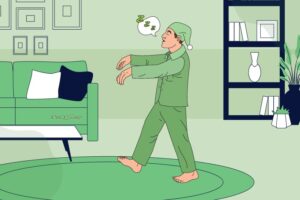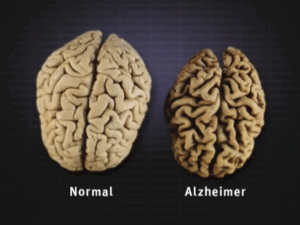Science shows that the perfect night’s sleep isn’t all about how long you’re in bed
From childhood bedtimes to notifications on your phone to wellness posters in schools, we’ve all heard that eight hours of sleep is vital if you want to feel energized and alert. But what if that number is a myth? Modern studies show that while sleep is still absolutely essential, eight hours may not be the magic number. In fact, most health organizations recommend seven hours of sleep for adults (1).

So why has eight hours become the golden rule? Most scientists believe that it stems from the fact that most adults require anywhere between seven and nine hours of sleep, with eight being an easy number to apply universally (1). In addition, the standardization of school and work schedules in the 1800s further solidified the eight-hour rule (2). However, the amount of sleep you need changes drastically with age, making a universal eight-hour rule misleading. A panel of eighteen sleep experts found eight distinct ranges of appropriate sleep times for different age groups, ranging from 14-17 hours of sleep for newborns to 7-8 hours for older adults (3). Falling short of these ranges can increase your risk for health problems such as diabetes, stress, heart disease, and stroke, and it may also increase your risk for car accidents (1). Additionally, sleep helps to strengthen memories made during the day and primes your brain for learning and new information the next day (4).
Despite all the health benefits of sleep, studies of large populations link both too little and too much sleep to worse health (5). After examining data from almost 500,000 individuals in the United Kingdom, Xin You Tai, Cheng Chen, Sanjay Manohar, and Masud Husain of Oxford University found that seven hours of sleep correlated with sharper thinking skills, while going significantly over or under that amount led to reduced cognitive performance (5). Consistently oversleeping and undersleeping can also cause similar physical problems, such as diabetes, heart disease, and headaches (6).
A good night’s sleep also isn’t just determined by length, but also by consistency and quality. A study of college students by the MIT Integrated Learning Initiative found that consistent and quality sleep, meaning similar bedtimes and wakeups with little interruption, correlated with better academic performance (7). Sleep scientists have also found that the mix of deep sleep and REM sleep during an uninterrupted period of sleep positively affects memory, learning, and mood (4, 8).
So the next time someone tells you that you must get eight hours, you’ll know that sleep isn’t a universal rule. Much like a phone battery, some people reach 100% faster, while others need more time. For most teens and adults, seven hours is enough, but the real key isn’t the length of your sleep—rather, it’s how you feel when you wake up.
Bibliography:
- CDC. (2025, February 12). About Sleep. Sleep. https://www.cdc.gov/sleep/about
- Petrzela, N. M. (2025, July 29). The Modern Origins of the 8-Hour Sleep Cycle. HISTORY. https://www.history.com/articles/human-sleep-cycle-origins
- Hirshkowitz, M., Whiton, K., Albert, S. M., Alessi, C., Bruni, O., DonCarlos, L., Hazen, N., Herman, J., Katz, E. S., Kheirandish-Gozal, L., Neubauer, D. N., O’Donnell, A. E., Ohayon, M., Peever, J., Rawding, R., Sachdeva, R. C., Setters, B., Vitiello, M. V., Ware, J. C., & Adams Hillard, P. J. (2015). National Sleep Foundation’s sleep time duration recommendations: methodology and results summary. Sleep Health, 1(1), 40–43. https://doi.org/10.1016/j.sleh.2014.12.010
- Sleep On It. (2024, June 17). NIH News in Health. https://newsinhealth.nih.gov/2013/04/sleep-it
- Tai, X. Y., Chen, C., Manohar, S., & Husain, M. (2022). Impact of sleep duration on executive function and brain structure. Communications Biology, 5(1). https://doi.org/10.1038/s42003-022-03123-3
- Oversleeping: Bad for Your Health? (2024, June 20). Hopkinsmedicine.org. https://www.hopkinsmedicine.org/health/wellness-and-prevention/oversleeping-bad-for-your-health
- Okano, K., Kaczmarzyk, J. R., Dave, N., John, & Grossman, J. C. (2019). Sleep quality, duration, and consistency are associated with better academic performance in college students. Npj Science of Learning, 4(1). https://doi.org/10.1038/s41539-019-0055-z
- Solan, M. (2023, October 30). How much sleep do you actually need? – Harvard Health. Harvard Health. https://www.health.harvard.edu/blog/how-much-sleep-do-you-actually-need-202310302986






Comments are closed.